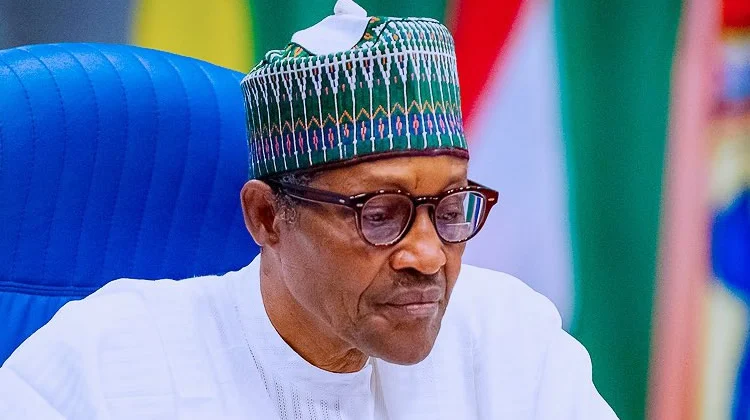
BUHARI INAUGURATES NIGERIA END MALARIA COUNCIL, ASSIGNS DANGOTE AS CHAIRMAN
President Muhammadu Buhari, stated on Tuesday that eliminating malaria and its associated complications would spare the nation from the disease’s predicted economic costs, which are expected to reach N687 billion in 2022 and N2 trillion by 2030.
Following the Nigeria End Malaria Council’s inauguration, President Buhari made the projection at the State House in Abuja in accordance with the African Union Assembly Declaration for the Establishment of EMCs across the continent.
Aliko Dangote, the chairman of the Dangote Group, was also chosen by him to preside over the council’s 16 members, and he said that the effective execution of its program would result in N2 trillion in savings over the next eight years.
In a press release headed “Nigeria will save N2 Trillion from eradicating Malaria, President Buhari proclaims, appointing Dangote Chairman of 16-member council to eradicate disease,” Femi Adesina, Special Advisor to the President on Media and Publicity, made this revelation.
The President emphasized that Nigeria stands to gain socioeconomically and in terms of public health by combating malaria.
Therefore, the elimination of malaria will remain a top priority on our agenda, with strong political commitment from leaders at all levels, he said. Our inauguration today will, therefore, ensure that.
In addition, the End Malaria Council will offer a forum for promoting increased funding to safeguard and maintain the progress made thus far by our nation and put us on a path to permanently eradicating malaria.
Buhari, who lamented that Nigeria alone accounts for 27 per cent of all cases of malaria and 32 per cent of deaths globally (according to the World Health Organisation in 2021), said, “Malaria infection can cause severe disease and complication in pregnant women and lead to high rates of miscarriage.
“It is also responsible for a considerable proportion of deaths in infants and young children, with children under 5 years being the most vulnerable group affected. These are reasons we must not relent in fighting malaria.”
The President further explained that he chose Dangote to chair the Council in recognition of his track record and passion in supporting initiatives on various health issues such as polio and primary health care system strengthening.
He expressed confidence that Dangote would bring his outstanding achievements to help the country achieve its goal of malaria elimination, adding that a group of eminent personalities, who have also made their mark across all walks of life, have been selected to work in the Council.
“I have been informed that the End Malaria Council has already been established in other African countries, in line with the African Union Assembly Declaration for Establishment of EMC’s in Africa.
“EMCs have provided leadership, new funding, and innovation to enable these countries to stay on track to meet malaria burden reduction targets. I am optimistic that the setting up of the Nigeria End Malaria Council will do the same for Nigeria.
The President also thanked the Chairman of the African Leaders Malaria Alliance, President Uhuru Kenyatta of Kenya, the Executive Secretary of ALMA, RBM Partnership in Nigeria for their continuous support to the Federal Ministry of Health and the malaria programme, in particular.
He also acknowledged the contributions of the Global Fund, the United States Agency for International Development, the President’s Malaria Initiative, Bill and Melinda Gates Foundation, WHO , UNICEF, UK Foreign and Commonwealth Development Office, other implementing partners, and the private sector.
In separate remarks, the Minister of Health, Osagie Ehanire, and the Minister of State for Health, Joseph Nkama, said since 2010, Nigeria has been recording a continuous decline in malaria from 42 per cent in 2010, 27 per cent in 2015 to 23 per cent in 2018.
However, they decried the yawning funding gap of about N1.89tn, which has impeded the implementation of the malaria programmes in Nigeria.
Ekumankama said, “The biggest challenge confronting us, which prevents the elimination of malaria, is inadequate finances to fund the NMSP.
“We are currently implementing NMSP of 2021 to 2025, with the intent to achieve a parasitic prevalence of less than 10 per cent and reduce mortality attributable to malaria to less than 50 deaths per 1000 live births by the year 2025. It will take about N1.89 trillion to implement this plan.
“However, in the first year of its implementation we had an estimated deficit of over N150 billion and in 2022, we already have a deficit of over N170 billion.”
In his acceptance speech, Dangote thanked the President and all members of the Council for entrusting him with the enormous responsibility, pledging to work hard to achieve the mandate.
“I must confess that this resonates with my current role as the Nigerian Ambassador for Malaria, my role on the Global End Malaria Council and with the work that my Foundation is doing to mobilise the private sector to support malaria control in Nigeria and Africa at large,” he said.
The Council members include Permanent Secretary, Office of the Vice President on Political and Economic Affairs, Shehu Ibrahim; Governor Kayode Fayemi of Ekiti State and Chairman of the Nigeria Governors’ Forum; Chairman, Senate Committee on Health, Sen. Yahaya Oloriegbe; Chairman, House Committee on AIDS, TB and Malaria, Abubakar Dahiru; Minister of Health, Dr Osagie Ehanire; Minister of State for Health, Ekumankama; and the Permanent Secretary, Federal Minister of Health, Mahmuda Mamman.
Others include Chairman, Board of Directors, UBA, Tony Elumelu; CEO, Rose of Sharon Group, Folurunsho Alakija; CEO, Access Bank, Herbert Wigwe; CEO Forte Oil, Femi Otedola; President, National Council of Women Societies, Lami Lau; Emertius Archbishop of Abuja Catholic Archdiocese, John Onaiyekan; National Amira, Federation of Muslim Women Nigeria, Rafiyat Sanni; and NEMC Secretariat/National Coordinator, National Malaria Elimination Programme, Dr Perpetua Uhomoibhi.
